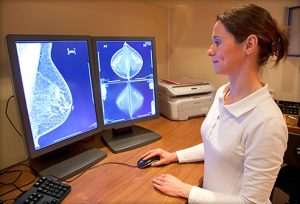 Cancer research has made remarkable strides over the past few years, pinpointing, for example, that women who carry certain common gene variants may be more vulnerable to some forms of breast cancer. But while increased detection rates is certainly great news, the newest research suggests that early detection of these genetic variants can lead doctors to advise patients adjust their lifestyle to lower their risk.
Cancer research has made remarkable strides over the past few years, pinpointing, for example, that women who carry certain common gene variants may be more vulnerable to some forms of breast cancer. But while increased detection rates is certainly great news, the newest research suggests that early detection of these genetic variants can lead doctors to advise patients adjust their lifestyle to lower their risk.
As a matter of fact, doctors say that even those women who are at the highest risk—the top 10 percent of those with the genetic variant—could lower their risk significantly by simply maintaining a healthy weight and be avoiding toxins like cigarette smoke and alcohol. Additionally, staying away from hormone therapies can help reduce the associated risks.
Accordinglly, Vanderbilt University School of Medicine professor, William Dupont, notes, “The bottom line is, this study provides evidence that, on a population level, a certain number of breast cancer cases would be prevented if women did these things.”
He also made sure to add that the current evidence only suggests a short period of menopausal hormones had just a very small effect on breast cancer risk.
Of course, women are currently only tested for BRCA gene mutations to detect breast cancer risk, and this means that most women would still not know if they carry other genetic variants that might be tied to breast cancer risk. However, genetic studies continue and so we may find more variants in the near future—which would improve cancer prevention in the generations to come.
Dupont also says that all of this research—now and in the future—will continue to provide doctors with better tools. Doctors, then, will be able to provide more individualized advice regarding breast cancer screening, a benefit they can then pass on to their patients.
However Dupont makes sure to also advise that breast cancer—like all cancers—is a complex disease. This is particularly true when trying to find genetic variants as, he says, many genes “come together” to influence the risk for any disease. Even this study demonstrates that genes are only part of a much bigger picture.
